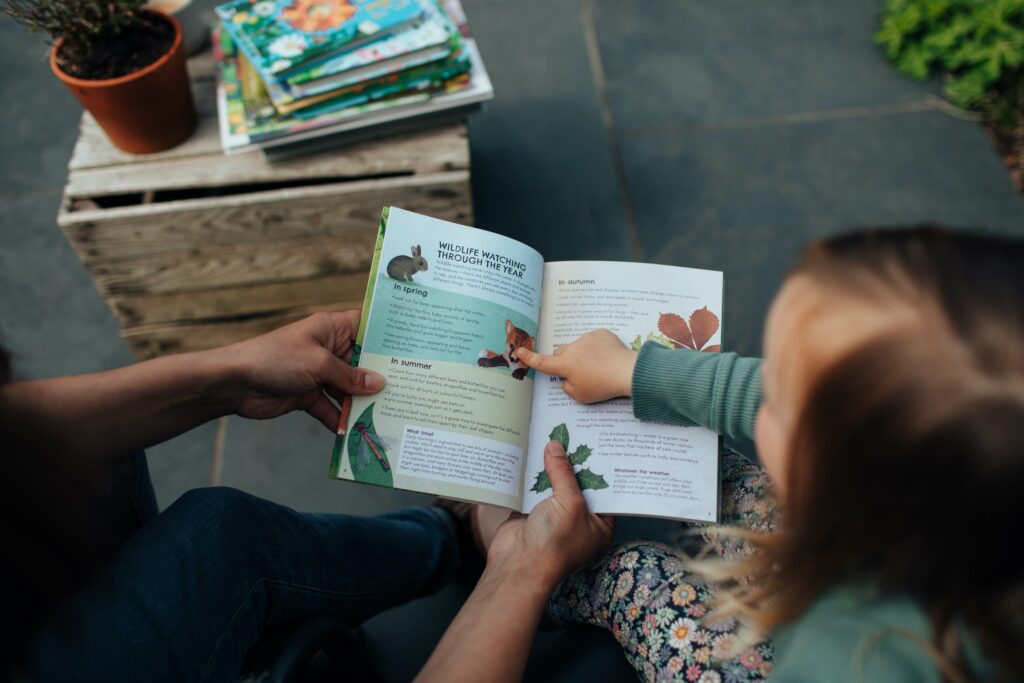
Storytelling is a timeless tradition that transcends cultures, languages, and generations. It has the remarkable ability to captivate minds, stir emotions, and impart invaluable life lessons. In the realm of childhood education, storytelling emerges as a powerful tool for instilling essential values and fostering empathy in young hearts and minds. This article delves into the profound impact of storytelling on a child’s moral and emotional development, offering insights into how parents and educators can harness its potential.
The Art of Relatability
Stories have an uncanny knack for connecting with children on a personal level. Characters and situations mirror their own experiences, making the narratives more relatable. When children see their struggles, triumphs, and dilemmas reflected in a story, they are more inclined to engage both emotionally and intellectually.
Stories provide an opportunity for children to reflect on their lives and analyze similarities between themselves and others. This can be especially helpful for young children who are just learning about the world around them and figuring out who they are as individuals.
Stories can also help children connect with characters who have strong traits similar to those in real life. For example, if a character feels lonely because he doesn’t have any friends at school or home, it may resonate with a child who is feeling similarly isolated. This can help him feel less alone when facing challenges in his own life.
Lessons Through Narratives

Moral values are often best learned through experience, and stories provide a safe yet vivid context for this. Through the trials and tribulations of fictional characters, children encounter lessons about honesty, kindness, respect, and responsibility. These lessons become more tangible and memorable when woven into a narrative tapestry.
The moral compass is an essential part of human nature and it guides our behavior, decision-making processes and attitudes towards others. It is the mechanism that helps us decide what is right or wrong in any given situation. Children develop their moral compass by being exposed to different types of stories that help them make sense of the world around them.
Walking in Another’s Shoes: The Gift of Empathy
“Walking in another’s shoes” is an expression that captures the essence of empathy. It refers to seeing the world through someone else’s eyes, and understanding their perspective, feelings, and life experiences. Empathy is the cornerstone of meaningful human connection. The ability to imagine what others are feeling and thinking helps us connect with them on a deeper level, which in turn leads us to treat them with kindness rather than cruelty.
But how can we help children develop this essential skill? One way is by telling stories that encourage them to put themselves in someone else’s shoes. When children immerse themselves in the lives and feelings of storybook characters, they cultivate a deeper understanding of diverse perspectives. This newfound empathy serves as a compass guiding them towards kinder, more inclusive interactions with others.
As adults, we tend to think of empathy as an innate quality that some people are born with while others lack — but science tells us otherwise! In fact, researchers have found that empathy can be cultivated through storytelling: when children immerse themselves in the lives and feelings of storybook characters, they cultivate a deeper understanding of diverse perspectives.”
Teaching Complex Ethics
While navigating the gray areas of life can be challenging, it’s important for children to learn how to navigate complex ethical dilemmas. The stories we tell our children are mirrors of the world around us, reflecting the good and bad elements of humanity. These stories can provide opportunities for critical thought and moral discussion. By exploring complex situations within narratives, children have a chance to examine their own beliefs, consider different perspectives and make decisions based on personal values and ethics.
In order to help children navigate gray areas in the classroom, teachers need to create an environment where students feel comfortable discussing sensitive topics. This may include having open discussions about difficult topics or presenting controversial issues through literature or art projects. Some schools even use role-playing exercises as a way for students to practice making decisions when presented with ambiguous situations.
Building Bridges Across Cultures
A child’s imagination is expansive. It is not limited to the confines of their own experience, but is instead open to all manner of possibilities. When children read stories from other cultures, they expand their understanding of the world and its peoples. The power of stories is undeniable. They can transport us to another time and place; they can teach us about different ways of life; they can inspire us toward empathy and compassion for those who might be different from ourselves.
Stories from diverse cultures open windows into worlds that may be vastly different from a child’s own. These narratives offer a profound opportunity to appreciate and respect the rich tapestry of human experiences. By immersing themselves in diverse stories, children cultivate an openness to different cultures, fostering a more inclusive worldview.
Processing Feelings through Stories

Emotions are an integral part of the human experience, and stories are adept at evoking a spectrum of feelings. Engaging with characters’ emotional journeys provides a safe space for children to explore their own feelings. This process contributes to the development of emotional intelligence, enabling children to better understand and manage their emotions.
Emotional intelligence (EI) is not just about controlling emotions; it’s also about understanding them. EI is about being aware of one’s own emotions and managing them effectively, as well as recognizing the emotions of others and empathizing with them. Emotional intelligence is important in everyday life because it affects how people relate to others, solve problems and communicate effectively. Stories provide a perfect environment for children to practice their emotional intelligence skills.
In the grand tapestry of education, storytelling emerges as a vibrant thread, weaving together values, empathy, and a deeper understanding of the human experience. By incorporating meaningful stories into a child’s learning journey, parents and educators lay the foundation for a future generation of compassionate, empathetic, and morally grounded individuals. Through the simple act of storytelling, we embark on a journey of transformation, shaping the hearts and minds of the leaders, thinkers, and changemakers of tomorrow.
RUCHI RATHOR Founder & CEO
Payomatix Technologies Pvt. Ltd.
FOUNDER AND INVESTOR | PAYMENTS PROCESSING EXPERT | MERCHANT ACCOUNT SOLUTIONS | WHITE LABELLED PAYMENT GATEWAY | Dreamer, Creator, Achiever, Constantly Evolving
Website Ruchi Rathor: https://ruchirathor.com
Website Healing Heart https://thehealingheart.me/
Instagram https://www.instagram.com/_ruchirathor_/
LinkedIn https://www.linkedin.com/in/ruchirathor12/
Facebook https://www.facebook.com/ruchi.rathor.magnificient
Tumblr https://www.tumblr.com/blog/ruchirathor-thehealingheart
Medium https://medium.com/@ruchirathor_23436









